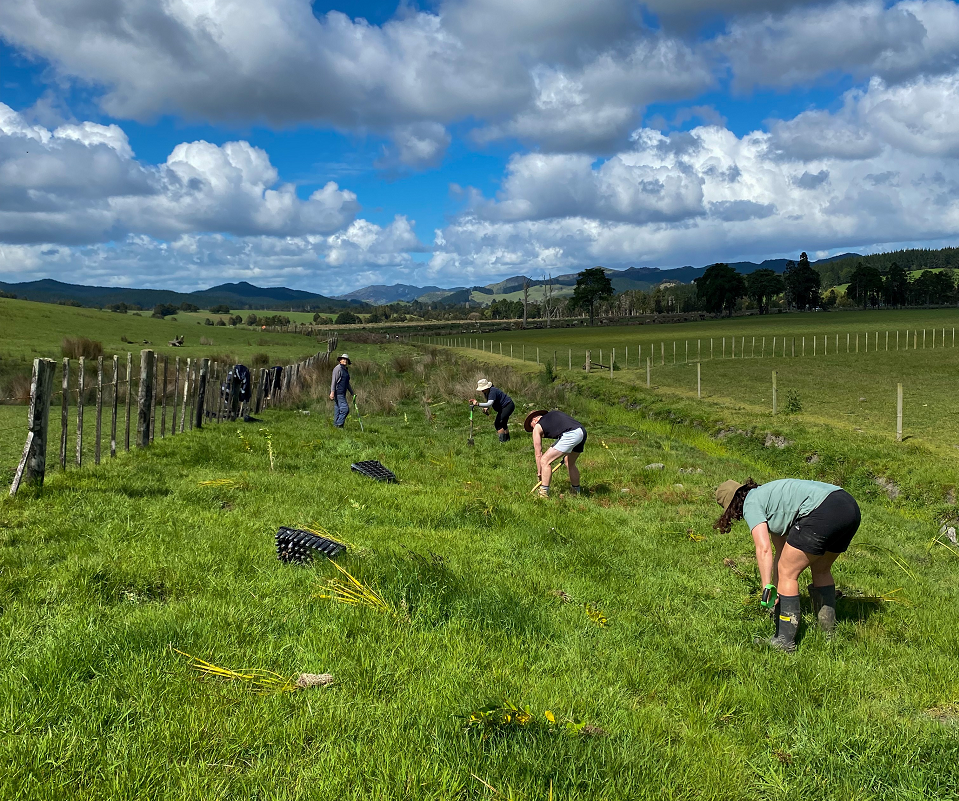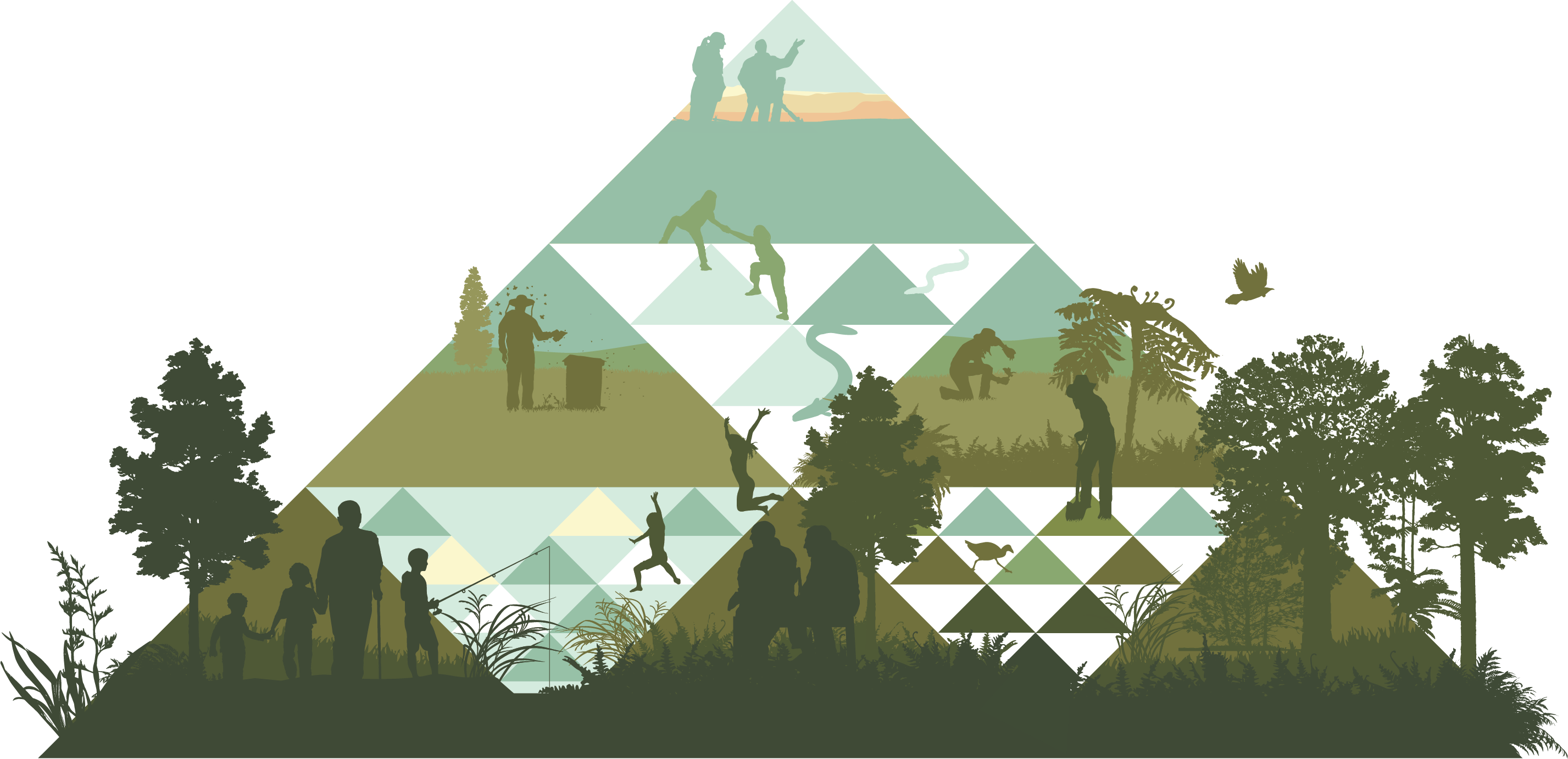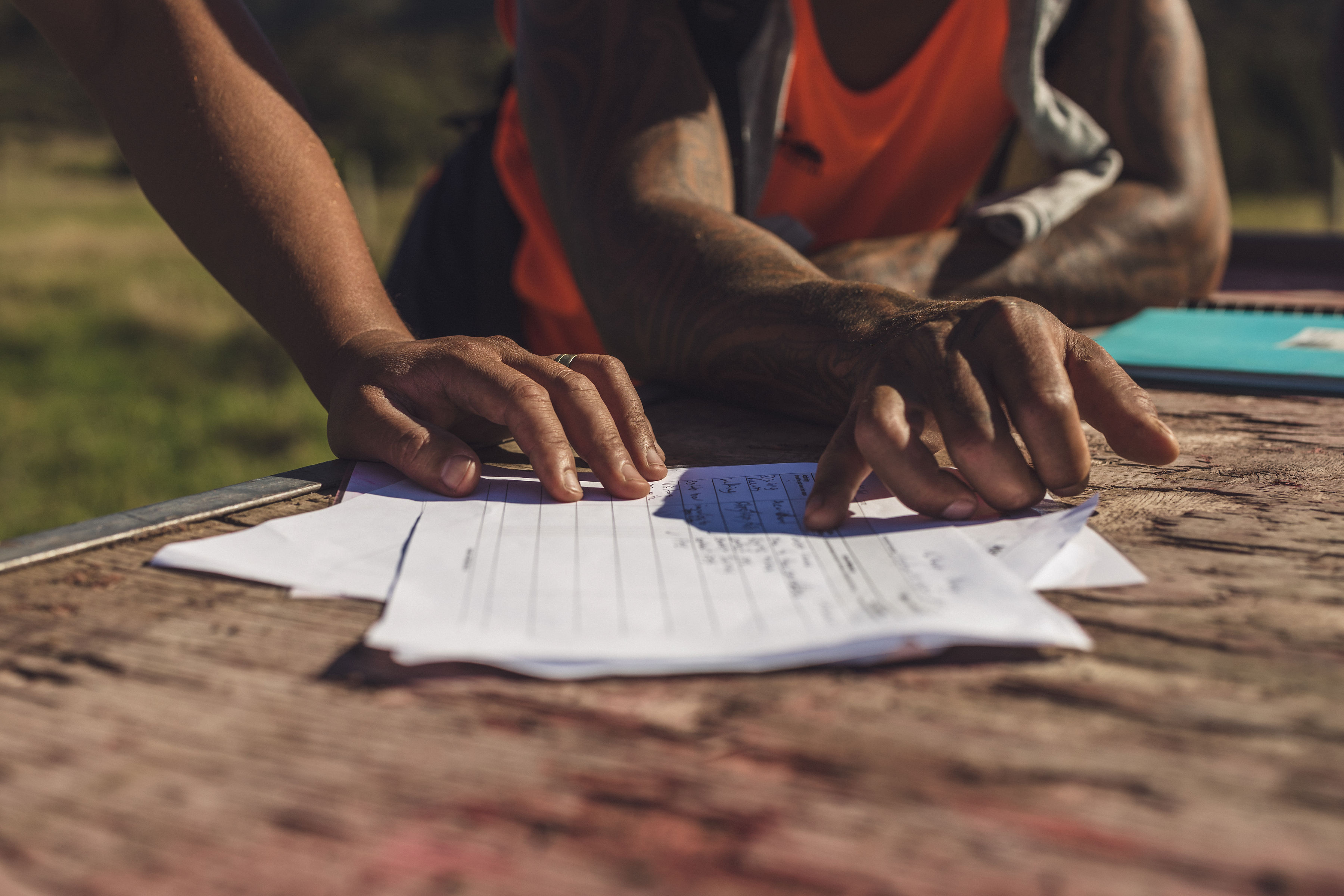
In three generations, Northland is a flourishing tapestry of abundant and resilient ecosystems.
See our impact report below and join us in celebrating our progress toward our vision.




In 2017, The Tindall Foundation & Foundation North partnered a landmark agreement to fund Reconnecting Northland's existing programme through to 2022, to the value of $3 million. Their model of funding the programme was innovative and bold and allowed for a longer-term view of strategic investment to achieve ecological impact in the region.
During the period 2017-2019, Reconnecting Northland focused investment initially into building the necessary foundations for a successful working organisation, including recruitment of a skilled operations team to deliver on our long-term vision and strategy for Northland - that “In three generations, Northland is a flourishing tapestry of abundant and resilient ecosystems”.
Receiving crucial programme funding support in this way, accelerated Reconnecting Northland's ability to attract agency support and co-investment of initiatives over the 2019-2021 period. In real terms, it has allowed us to scale up our impact by bringing our programme funding into service to attract and invest a further $3.3 million into ‘on the ground’ socio-ecological benefits.
We hope to continue to build on this model and change the way community conservation efforts are supported. May these seeds continue to grow and take hold.
*Initiative financials below represent actual contract funding received during the period 1 July 2018 - 30 June 2021.
He Ripo Kau - $3,038,869.37
Learn more about He Ripo Kau
Te Kawa Waiora - $341,495.00
Learn more about Te Kawa Waiora.
Mangakāhia/Whatitiri - $10,000
The development of a third tapere initiative, Mangakāhia/Whatitiri, has been in progress for over a year, making great strides and receiving positive feedback within the community. Now in the final vision-setting stage with the community, we can’t wait to see this tapere’s ecological aspirations come to fruition!
*Initiative financials below represent actual contract funding received during the period 1 July 2018 - 30 June 2019.
He Ripo Kau - $186,280.82
- Community Environment Fund, Northland Regional Council, Te Puni Kokiri
Te Kawa Waiora - $19,431.42
- Northland Regional Council
*Initiative financials below represent actual contract funding received during the period 1 July 2019 - 30 June 2020.
He Ripo Kau - $1,781,311.70
- Kānoa - RDU (formerly PDU), Community Environment Fund, Northland Regional Council, Te Puni Kokiri, Ministry of Social Development.
Te Kawa Waiora - $235,713.58
- Northland Regional Council
*Initiative financials below represent actual contract funding received during the period 1 July 2020 - 30 June 2021.
He Ripo Kau - $1,071,276.85
- Kānoa - RDU (formerly PDU), Community Environment Fund, Northland Regional Council
Te Kawa Waiora - $86,350.00
- Northland Regional Council
Mangakāhia/Whatitiri - $10,000
- Northland Regional Council


Annual snapshot of Reconnecting Northland's programme and initiative outputs over the period 1 July 2020 - 30 June 2021.

4
Hui wānanga held
5
Community invite hui
140
Attendees at RN facilitated hui
10
Contracts for service awarded attributable to initiatives

17
Training courses provided
156
Total participants
47
Certifications obtained
$1.1mil
Initiative funding secured

30.1
Km of riparian fencing
34.5
Ha of revegetation
164,657
Native plants

Ko Wairoa tangata e haere, Ko Wairoa ia e kore e haere
People of the Wairoa depart life, but the Wairoa current never leaves
Waima, Waitai, Waiora is a collective of seven Northland organisations, stakeholders and tangata whenua, established to tackle the issue of sedimentation that comes from the Wairoa River, the largest contributor of sedimentation to the Kaipara Harbour, with an objective to restore the health, wellness and mauri of the river.
As part of this partnership to date Reconnecting Northland has:



Te Kawa Waiora is a research project focused on the health and mauri of the Wairoa river and its tributaries, overseen by Reconnecting Northland, inspired and informed by the heads, hearts and rich history of the river's hau kainga. Through hui wānanga, kōrero, purākau and mōteatea, the awa's people have come together to discuss what a Mātauranga-based approach to governance and kaitiaki for the river might look like, and to record the ancient evidence and new thinking that signposts the next part of their journey.

The purpose of He Ripo Kau is to weave people together to achieve the HRK 100-year vision; a landscape of abundance, with bird-filled forests that stretch to the sea and clean clear waterways teeming with life. Where a tapestry of regenerative land use sustains people to live the lives they value.
He Ripo Kau has also been supported by a 2-year Kānoa-RDU project ‘Clean Clear Water’, which has brought in an additional $3.2million to conduct 75km of riparian fencing and 75ha of riparian planting on the Whirinaki and Waimamaku Rivers.



Te Kete Hononga is Reconnecting Northland’s core service-based offering. Its primary aim is to streamline access to the ‘know how’ required to achieve and scale up conservation efforts in Northland. This will be achieved through the delivery of targeted ecological tools, services, and resources to community groups, via on the ground relationships with our Connectivity Activators.
Unlike traditional training and compliance models, Te Kete Hononga has been developed in direct response to community needs, creating a tailored approach to connect communities to the providers, courses, and resources they need.

The training and development programme, piloted through the PGF Clean Clear Water initiative, has been a breakthrough for Te Kete Hononga and what it can do in action. Through a programme tailored around the participant’s needs, the crew have worked hard to obtain the specific skills, experience and qualifications they need to build their careers in the environmental sector.


We bring communities, agencies and resources together to support thriving ecosystems across Northland.
Reconnecting Northland is a connectivity conservation programme, which put simply, acknowledges that nature is better when connected. We recognise that habitats and species function best as part of a large, interconnected network that also sustains the livelihoods of people. Our programme and vision are focused on intergenerational ecological impact and delivering sustainable change across the four wellbeings; social, cultural, economic, and environmental.
Saving nature is a human enterprise and this is reflected in Reconnecting Northland’s focus on building lasting capability through employment, training, skills, and development. To grow biodiversity and see Northland as a flourishing tapestry of resilient and abundant ecosystems, we must first address the systemic issues. Reconnecting Northland creates opportunities to empower communities to achieve their ecological restoration aspirations for generations to come. We support the formation of community collectives, called tapere to achieve landscape scale change and facilitate the development of collective vision and action.
Reconnecting Northland, in partnership with two of the world’s leading connectivity conservation programmes, Gondwana Link and Great Eastern Ranges, formed a new network to grow and share knowledge – Conservation Across Large Landscapes Australia New Zealand (CALLANZ).
The CALLANZ network this year launched a three-part webinar series, the Art of Connecting, to highlight connectivity conservation as a response to climate change, with each webinar featuring a panel of key ecological experts and practitioners. With both Australian and New Zealand’s international borders shut, the series created an opportunity to continue conversations on critical issues like ecological fragmentation and climate change.
Reconnecting Northland’s Eamon Nathan and Celia Witehira each presented in webinars across the three-part series. Trustee Justine Daw was MC for the final event with all three CEOs from the CALLANZ partner organisations presenting to wrap up the series.
Feedback from attendees and speakers alike has been hugely positive with high levels of interest by the audience in sustainable resourcing and further webinars.
Overall, the series had a combined total of 334 live viewers across at least 10 countries, and the recordings have been viewed on YouTube more than 445 times to date.
Check out the Art of Connecting 2021 webinar recordings below.
We Are Nature
Providing Natural Solutions Through Connecting Landscapes
Connecting For Wildlife Movement
Reconnecting Northland, like most organisations in Aotearoa and around the world, has been significantly impacted by the covid-19 pandemic. With so much of our work taking place with communities, in their places, we have had to transform and rethink the way we work to maintain these connections through the further fragmentation caused by both national and local lockdowns.
We know that our foresight now is crucial in positioning ourselves and our communities for success in a post-pandemic world. A challenge we’re ready to tackle as we strive to continue supporting Te Taitokerau communities in achieving their ecological aspirations.
In anticipation of operating in a covid landscape for the foreseeable future, we are actively working to build community resilience, independence and autonomy and ensuring resources are channeled to the right places to achieve the greatest outcomes and impact for the communities we support.
Mana Enhancing Agreement (MEA) - An agreement based on the shared principles and values of the parties. Created on a basis of mana through a collaborative workshop as opposed to a templated contractual document.
Connectivity Activator - Our community relationship builders and coordinators. Connectivity Activators work closely with groups undertaking environmental work, by facilitating hui within communities to define their vision, as well as identifying their needs and how these may be met through accessing the tools, services and resources available in Te Kete Hononga.
Te Kete Hononga - Te Kete Hononga is an integrated model that facilitates access to the products, services and resources needed to build lasting capability to deliver environmental projects. This is a unique model that addresses the gaps and limitations in the existing approach to supporting community-based environmental action.
Tapere - A collective of community groups' self defined geographic area
Vision Document - A document depicting the environmental aspects of a community's collective vision for their future. These vision documents span a three-generation timeframe to fully capture the community ambitions.
Connectivity Plan - A collaborative plan written by the groups within a tapere which outlines the short- and long-term goals and outcomes required to achieve the vision.
Project Plan - A local or catchment-based plan which outlines the operational detail of how a group or groups will contribute to achieving the connectivity plan and overall tapere vision, as well as meeting local aspirations.
